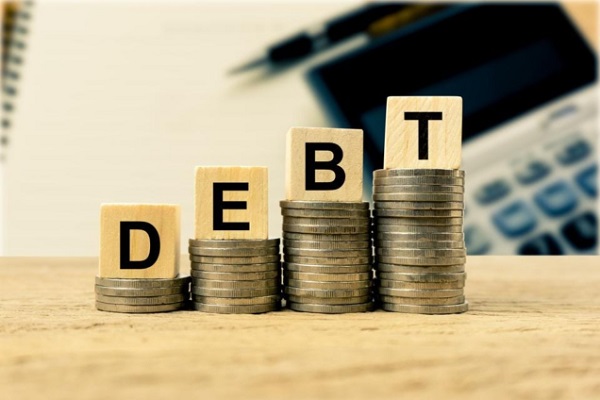The International Monetary Fund (IMF) has projected that Ghana’s debt-to-GDP ratio will reach 98.7% by the end of 2023.
This comes as part of the Fiscal Outlook Report released at the Annual IMF/World Bank Spring Meetings in Washington DC, USA. While the report also forecasts a marginal reduction in the Debt-to-GDP Ratio to reach 92.8% in 2024, the projected increase has raised concerns among industry experts and policymakers alike.
Ghana recently undertook a Domestic Debt Exchange Programme (DDEP) to reduce the country’s debt stock. The Finance Ministry, in its Debt Strategy Paper, had indicated that the DDEP would end up restructuring around ¢138 billion worth of bonds. However, only ¢98 billion worth of the bonds were tendered for the debt restructuring program, which has led some analysts to question the efficacy of the program and its potential impact on debt numbers by the end of 2023.
In addition to the DDEP, the Ghanaian government is also seeking to restructure or possibly seek debt cancellation of more than $5 billion of debt owed to the Paris Club Members. While these efforts are a step in the right direction, there remains a significant challenge to address Ghana’s debt burden.
Launching the report, the Director of Fiscal Affairs at the IMF, Vitor Gaspar, advised the government of Ghana to ensure that fiscal policy is consistent with monetary policy to restore price and financial stability while supporting the most vulnerable. He added, “Abrupt changes in financial conditions also call for fiscal restraint to tackle fiscal vulnerabilities. To that end, governments will need to give greater priority to rebuilding fiscal buffers by developing credible risk-based fiscal frameworks that promote”.
The IMF in the Fiscal Monitor Report has classified Ghana’s economy as a Low Income Developing Country. This comes after some reports stated that Ghana had been categorized as a “Highly Indebted Poor Country.” While this change in classification may have some bearing on the country’s development prospects, it is important to note that the classification is a reflection of the country’s income level and does not solely represent the debt burden.
The IMF has projected that Ghana’s Gross Domestic Product (GDP) growth rate for 2023 will slow to 1.6%, which is lower than Ghana’s forecast of 2.8% captured in the 2023 Budget. The IMF in its 2022 World Economic Outlook Report had projected Ghana’s growth rate for 2023 at 3.6%. However, the IMF in the report linked the slowdown to some global economic challenges, such as the COVID-19 pandemic, the Russia-Ukraine War, energy issues, and their impact on Ghana’s economy for this year.
While Ghana’s government has undertaken efforts to address the country’s debt burden, it remains a significant challenge. The IMF’s projection of a further increase in the Debt-to-GDP Ratio has raised concerns and highlights the need for further action to address the situation. The government must ensure that its fiscal policy is consistent with monetary policy to restore price and financial stability while supporting the most vulnerable in the society. In addition, the IMF’s classification of Ghana’s economy as a Low Income Developing Country highlights the need for continued efforts to address the country’s development challenges.
Source: norvareports





